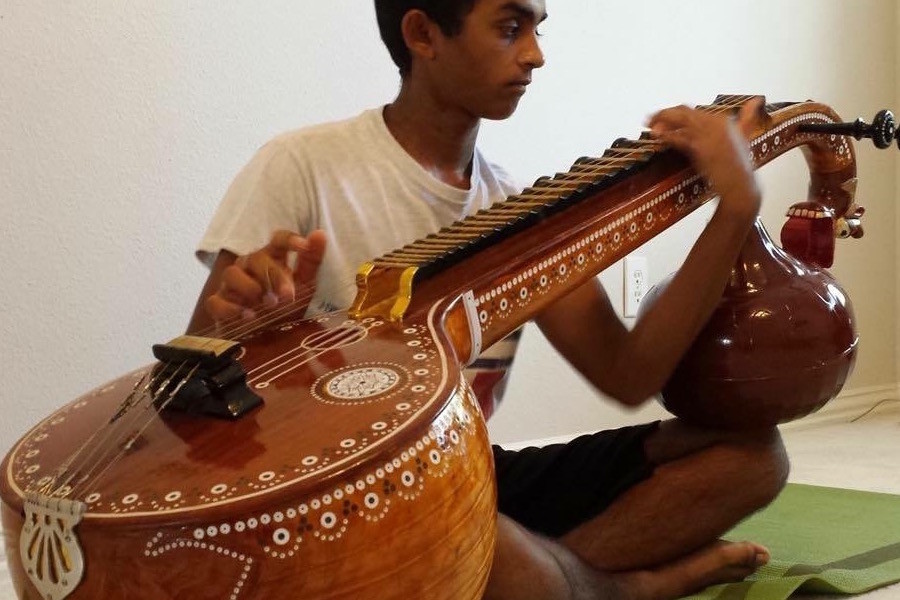Kalvacherla’s veena virtuosity
April 1, 2016
Although the piano, violin and clarinet have long, rich histories rooted in European classical music, none of these instruments quite compare to the veena, a south Indian instrument that has been played for more than a thousand years, and is still practiced today.
One of these practitioners is Coppell High School senior Vinay Kalvacherla, who began to play the veena two years ago over the summer, and goes to Flower Mound every two weeks to practice with a teacher.
“I didn’t know [the veena] actually existed prior to high school,” Kalvacherla said. “My best friend was an 11th generation player. I met him, fell in love with the instrument, fell in love with the sound.”
The veena has a large resonator and neck, and seven strings. The music that is played is different from a guitar. The instrument is structured so the oscillations associated with classical music are more easily performed and the sound of the voice can be replicated.
“It’s a completely different kind of music,” Kalvacherla said. “I played the piano for several years, and since the veena is a string instrument, the intricacies are very specific and very different.”
The veena has historical importance in southern Indian culture. According to Vasundhara Kikkeri, Kalvacherla’s veena teacher and director of the North Texas Veena Institute, the veena evolved from a early harp instrument to the modern day lute instrument currently played. The veena also has religious significance.
“The therapeutic effects of veena on the body are well documented,” Kikkeri said. “Religiously, the goddess of knowledge, Saraswati, is associated with the veena.”
Kalvacherla thinks playing the veena helps him connect to his ancestral homeland and to his cultural heritage. He has discovered an identity for himself through the instrument, though he admits the most difficult part is that there are less people interested in listening.
“Playing classical music in a time where that music is fading is a challenge because the number of people that appreciate the music is far less than what it would be several years ago,” Kalvacherla said. “There is less popular value.”
Despite the difficulty, though, his father, Prabhakar Kalvacherla, states that learning the veena has helped broaden his son’s perspective on ancient arts and traditions, and become more appreciative of the compositions of South Indian musicians. In addition, playing the veena helps him relax from school.
“He is exploring and discovering the richness of cultures and arts of yesteryears,” Prabhakar said. “Pursuing veena has also given him a new purpose and a healthy outlet to relax and de-stress. This is helping him deal with the pressures of a relentless high school curriculum and other activities.”











Ben • May 12, 2016 at 4:28 am
Thanks Jasmine for a great piece on veena and its contemporary players. I never heard of such instrument before reading this. In today’s fast-paced society obsessed with facebook, selfie, and mass-produced entertainment, this thousand-year art form contributes unique value to one’s individual enlightenment as well as our collective culture.